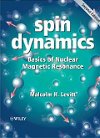2D 1H and 3D 1H-15N NMR of zinc-rubredoxins: contributions of the beta-sheet to thermostability.

 Related Articles 2D 1H and 3D 1H-15N NMR of zinc-rubredoxins: contributions of the beta-sheet to thermostability.
Related Articles 2D 1H and 3D 1H-15N NMR of zinc-rubredoxins: contributions of the beta-sheet to thermostability.
Protein Sci. 1996 May;5(5):883-94
Authors: Richie KA, Teng Q, Elkin CJ, Kurtz DM
Based on 2D 1H-1H and 2D and 3D 1H-15N NMR spectroscopies, complete 1H NMR assignments are reported for zinc-containing Clostridium pasteurianum rubredoxin (Cp ZnRd). Complete 1H NMR assignments are also reported for a mutated Cp ZnRd, in which residues near the N-terminus, namely, Met 1, Lys 2, and Pro 15, have been changed to their counterparts, (-), Ala and Glu, respectively, in rubredoxin from the hyperthermophilic archaeon, Pyrococcus furiosus (Pf Rd). The secondary structure of both wild-type and mutated Cp ZnRds, as determined by NMR methods, is essentially the same. However, the NMR data indicate an extension of the three-stranded beta-sheet in the mutated Cp ZnRd to include the N-terminal Ala residue and Glu 15, as occurs in Pf Rd. The mutated Cp Rd also shows more intense NOE cross peaks, indicating stronger interactions between the strands of the beta-sheet and, in fact, throughout the mutated Rd. However, these stronger interactions do not lead to any significant increase in thermostability, and both the mutated and wild-type Cp Rds are much less thermostable than Pf Rd. These correlations strongly suggest that, contrary to a previous proposal [Blake
PR et al., 1992, Protein Sci 1:1508-1521], the thermostabilization mechanism of Pf Rd is not dominated by a unique set of hydrogen bonds or electrostatic interactions involving the N-terminal strand of the beta-sheet. The NMR results also suggest that an overall tighter protein structure does not necessarily lead to increased thermostability.
PMID: 8732760 [PubMed - indexed for MEDLINE]
Source:
PubMed



